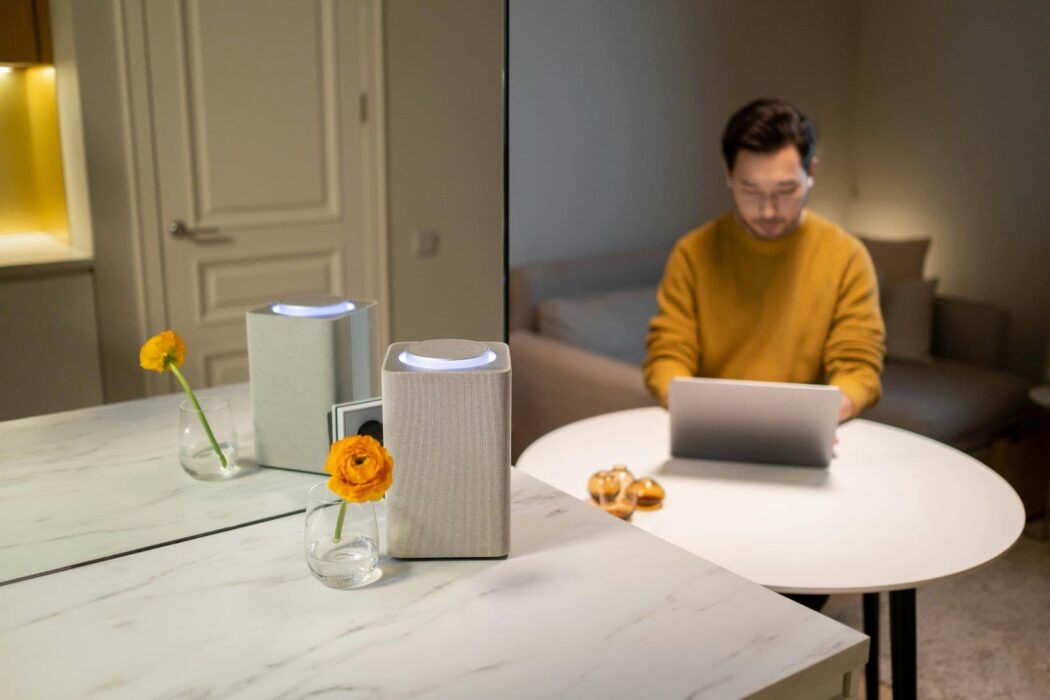In recent years, smart home technology has emerged as a significant player in the quest for sustainable development. As the global population continues to grow and urbanize, the demand for energy-efficient and resource-conscious living solutions has never been more critical. Smart homes, equipped with interconnected devices and automated systems, offer innovative ways to reduce energy consumption, lower carbon footprints, and promote a sustainable lifestyle. This article explores how smart home technology drives sustainable development, examining its impact on energy efficiency, resource management, and environmental conservation.
Understanding Smart Home Technology
Smart home technology refers to residences equipped with devices and systems that can be controlled remotely via a smartphone, tablet, or computer. These devices are interconnected through the Internet of Things (IoT), allowing for seamless communication and automation. From smart thermostats that adjust temperatures based on occupancy patterns to intelligent lighting systems that turn off when not in use, these technologies enhance convenience while promoting energy efficiency. Innovations like these are becoming as accessible as no deposit bonus codes Australia, offering users advanced features without added complexity.
The Role of Smart Homes in Sustainable Development
Sustainable development is about meeting the needs of the present without compromising the ability of future generations to meet their own needs. Smart home technology contributes to this goal in several ways:
- Energy Efficiency
Smart homes utilize energy more efficiently through automated systems and real-time monitoring. For instance, smart thermostats learn a household’s patterns and adjust heating and cooling accordingly, reducing unnecessary energy use. - Resource Management
Intelligent water management systems can detect leaks, monitor usage, and optimize irrigation, conserving water—a critical resource in sustainable development. - Reducing Carbon Footprint
By minimizing energy waste and optimizing resource use, smart homes reduce greenhouse gas emissions, contributing to climate change mitigation efforts. - Enhancing Quality of Life
Smart homes provide a comfortable living environment while promoting sustainable practices, improving the overall quality of life for residents.
Comparison of Traditional Homes vs. Smart Homes in Sustainability Metrics
| Metric | Traditional Homes | Smart Homes |
| Energy Consumption | Higher | Lower due to automation |
| Water Usage | Unmonitored | Monitored and optimized |
| Carbon Emissions | Higher | Lower |
| Waste Management | Manual | Automated and efficient |
| User Convenience | Standard | Enhanced via automation |
Top 5 Ways Smart Home Technology Contributes to Sustainability
- Smart Energy Management Systems
These systems monitor and control energy usage throughout the home. They can automatically adjust lighting, heating, and cooling based on occupancy and time of day, significantly reducing energy waste. - Intelligent Lighting Solutions
Smart lighting systems use sensors and timers to ensure lights are only on when needed. LED bulbs, which consume less energy and have longer lifespans, are often integrated into these systems. - Automated Climate Control
Smart thermostats learn residents’ schedules and preferences, optimizing heating and cooling systems to reduce energy consumption without sacrificing comfort. - Water Conservation Technologies
Smart irrigation systems adjust watering schedules based on weather forecasts and soil moisture levels, while smart faucets and showerheads reduce water flow without affecting performance. - Waste Reduction through Smart Appliances
Smart refrigerators can track food expiration dates, helping reduce food waste. Smart washing machines optimize water and detergent use based on load size.
Benefits of Smart Home Technology
- Energy Savings: Significant reduction in utility bills through optimized energy use.
- Environmental Impact: Lower carbon emissions contribute to global efforts against climate change.
- Convenience and Comfort: Automated systems provide a seamless living experience.
- Safety and Security: Smart security systems enhance home safety with real-time monitoring.
- Increased Property Value: Homes equipped with smart technology are often valued higher in the real estate market.
Deep Dive into Smart Energy Management
Energy management is at the heart of sustainable living, and smart home technology revolutionizes how households consume energy. Traditional energy systems operate on fixed schedules or manual controls, often leading to inefficiencies and wastage. In contrast, smart energy management systems use data analytics and machine learning algorithms to predict and optimize energy use.
For example, a smart thermostat doesn’t just adjust temperatures based on immediate inputs but learns from residents’ behaviors. It considers factors such as time of day, occupancy patterns, and even weather forecasts to make intelligent decisions. Moreover, integration with renewable energy sources, like solar panels, allows homes to not only reduce consumption but also generate clean energy, further decreasing reliance on fossil fuels.
Innovations in Water Conservation
Water scarcity is a growing concern globally, and smart home technologies offer solutions to manage this precious resource more effectively. Smart irrigation systems, for instance, use weather data and soil sensors to determine the optimal watering schedule for gardens and lawns, preventing overwatering and conserving water.
Similarly, smart meters provide real-time data on water usage, alerting homeowners to leaks or unusually high consumption. Some advanced systems can automatically shut off water supply in case of a detected leak, preventing water damage and further wastage.
Enhancing Waste Management through Smart Appliances
Food waste is a significant issue contributing to greenhouse gas emissions when organic waste decomposes in landfills. Smart refrigerators equipped with inventory tracking can alert users when food items are nearing expiration, encouraging timely consumption and reducing waste. Some models even suggest recipes based on available ingredients, promoting efficient use of food resources.
Additionally, smart trash cans can automatically sort recyclables from non-recyclables, streamlining the waste management process and promoting recycling efforts at the household level.

Smart Homes and Renewable Energy Integration
Integrating renewable energy sources with smart home systems amplifies the benefits of both technologies. Solar panels, when connected to a smart grid, can supply excess energy back to the grid during peak production times. Smart homes can schedule high-energy-consuming tasks, like running the dishwasher or charging an electric vehicle, during periods when renewable energy availability is highest, maximizing the use of clean energy.
Smart Home Technologies and Their Sustainable Impact
| Smart Technology | Function | Sustainability Impact |
| Smart Thermostats | Automated climate control | Reduces energy consumption and emissions |
| Smart Lighting Systems | Automated lighting based on occupancy | Lowers electricity usage |
| Smart Irrigation Systems | Optimizes watering schedules | Conserves water resources |
| Smart Appliances | Energy-efficient operation and usage tracking | Minimizes energy use and reduces waste |
| Home Energy Monitoring Systems | Real-time energy consumption data | Empowers users to make energy-saving decisions |
Emerging Trends in Smart Home Technology
- Voice and Gesture Control: Enhances accessibility and reduces the need for physical interfaces, promoting inclusivity.
- Artificial Intelligence Integration: AI algorithms improve the predictive capabilities of smart devices, leading to greater efficiency.
- Interoperability Standards: Development of universal standards ensures different devices and systems work seamlessly together.
- Edge Computing: Processes data locally on devices, reducing the need for data transmission and lowering energy consumption.
Steps to Transition to a Smart, Sustainable Home
- Assess Current Energy and Resource Usage
Conduct an energy audit to understand where inefficiencies lie. - Set Sustainability Goals
Define clear objectives, such as reducing energy consumption by a certain percentage. - Invest in Smart Devices Strategically
Prioritize devices that offer the greatest impact on sustainability, like smart thermostats and lighting. - Ensure Proper Installation and Integration
Professional installation can optimize device performance and ensure systems work together effectively. - Monitor and Adjust
Use data from smart home systems to continually assess performance and make adjustments as needed.
Advantages of Adopting Smart Home Technology
- Customization: Tailor home environments to personal preferences while conserving resources.
- Remote Access and Control: Manage home systems from anywhere, increasing flexibility and control.
- Proactive Maintenance: Smart systems can predict maintenance needs, preventing breakdowns and extending the life of appliances.
- Community and Grid Benefits: Contribute to broader energy efficiency and sustainability goals at the community level.
Challenges and Considerations
While smart home technology offers numerous benefits, there are challenges to consider:
- Initial Costs: The upfront investment for smart devices can be high, though long-term savings often offset this.
- Privacy and Security Risks: Interconnected devices can be vulnerable to hacking if not properly secured.
- Technological Compatibility: Ensuring that all devices communicate effectively can be complex.
Smart home technology plays a pivotal role in driving sustainable development. By enhancing energy efficiency, optimizing resource management, and reducing environmental impact, smart homes represent a significant step towards a more sustainable future. As technology continues to advance, and as more people adopt smart home solutions, the cumulative effect on global sustainability efforts could be substantial.
Frequently Asked Questions
How does smart home technology reduce energy consumption?
Smart home technology reduces energy consumption by automating and optimizing the use of household systems. Devices like smart thermostats adjust heating and cooling based on occupancy and preferences, while smart lighting systems turn off lights in unoccupied rooms. Real-time monitoring allows residents to track and adjust their energy use proactively.
Are smart homes cost-effective in the long run?
Although the initial investment in smart home technology can be significant, the long-term savings often justify the cost. Energy-efficient systems reduce utility bills, and smart appliances can extend the life of home systems through optimized use. Additionally, smart homes may have higher resale values.
What measures can be taken to enhance the security of smart home systems?
To enhance security:
- Use Strong, Unique Passwords: Avoid default passwords and change them regularly.
- Enable Two-Factor Authentication: Adds an extra layer of security.
- Keep Software Updated: Regular updates patch security vulnerabilities.
- Secure Your Home Network: Use encryption like WPA3 for Wi-Fi and consider a separate network for smart devices.
- Be Cautious with Third-Party Apps: Only use trusted applications and services.



